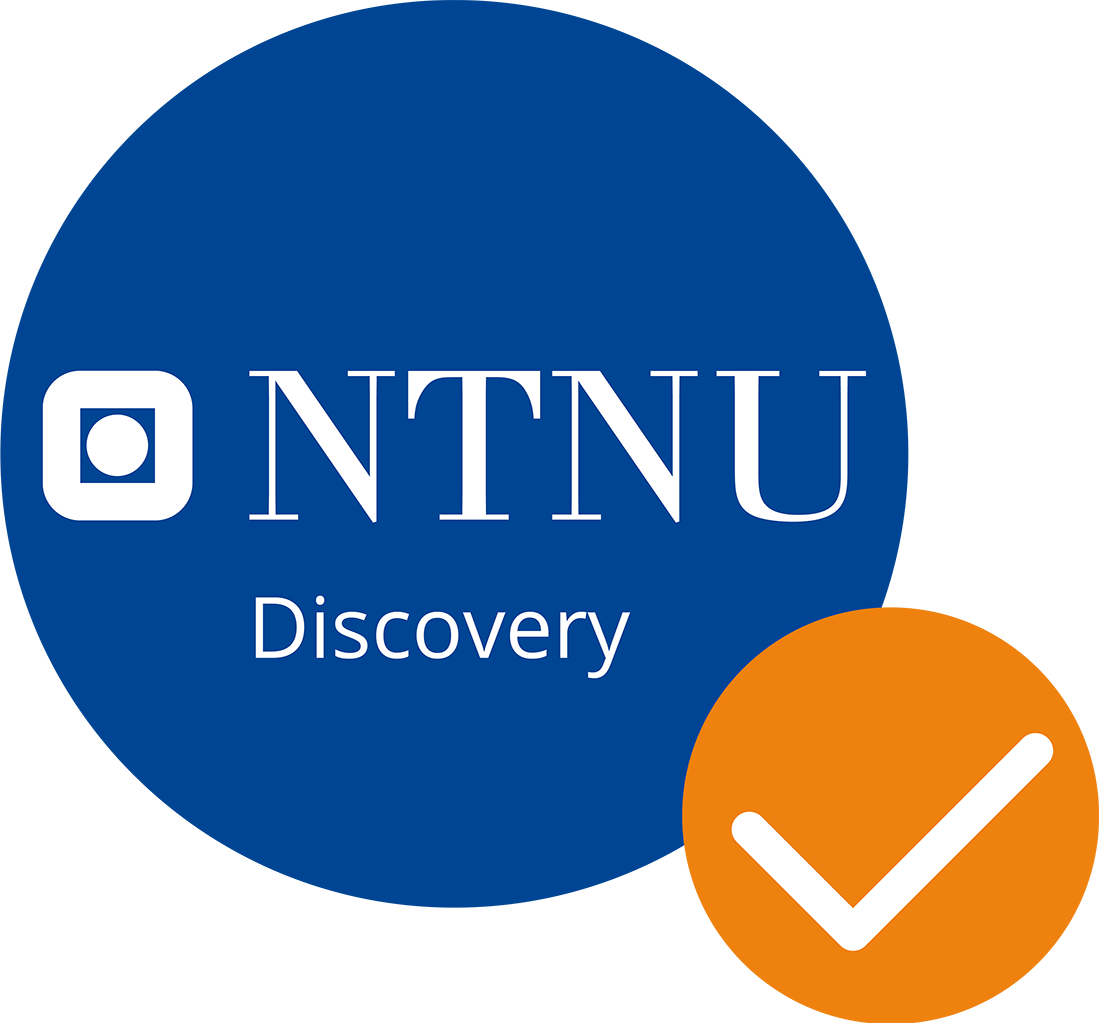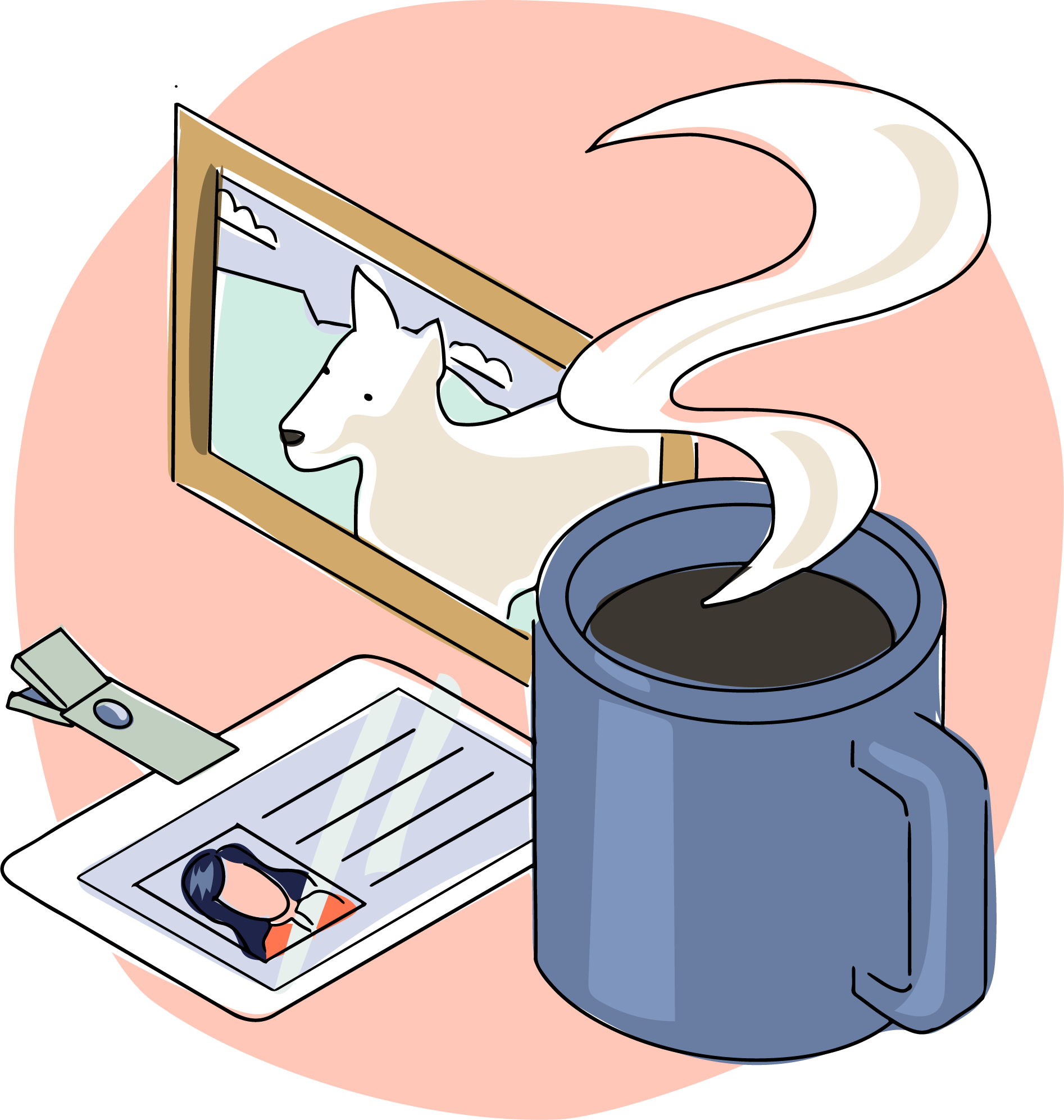From bare ground to new heights
Aviant aims to be the first and largest when the future is delivered by drone.

CEO Lars Erik Fagernæs and flight manager Herman Øie Kolden in Aviant’s drone hangar.
Text: Per-Steinar Moen
Photo: Kristoffer Wittrup
The Trondheim-based company Aviant has, in just a few years, established itself as a leading drone company in Europe, valued by Dagens Næringsliv at between 65 and 100 million kroner. But the road getting there has been long.
About four years ago, the company was established by then NTNU students Lars Erik Fagernæs, Herman Øie Kolden, and Bernhard Paus Græsdal. They started from scratch. “We didn’t have the money to do this, and we were going to build autonomous drones,” says 29-year-old Lars Erik Fagernæs. Investors would pat them on the back and wish them luck, but not invest.
The turning point came when they received their first funds from the Spark/Trønderenergibidraget and NTNU Discovery. “That was crucial for us,” he concludes. Today, he leads the company with about 20 employees from the co-working space Faktry at Sluppen in Trondheim, where they have offices, a workshop, and storage space.
High ambitions
The ambitions were high from the start. Aviant aimed to build long-flying, autonomous drones capable of carrying everything from medicines, food, and daily goods, and with a range of 120 kilometers, further than similar concepts internationally.
American tech giants like Alphabet and Amazon have invested a lot of time and significant amounts of money to be the first and best at home delivery with drones. Amazon has spent $2 billion, but as of May 2023, they had only completed 100 deliveries. Alphabet’s subsidiary Wing has gone somewhat further, with a total of several hundred thousand deliveries in Australia, the US, Finland, and Ireland.
So why would three technology students from NTNU manage something Jeff Bezos has yet to succeed in?
“Come to Silicon Valley!”
Lars Erik has been involved in several start-up adventures originating from NTNU. A few years before Aviant, he helped start Gobi, a social media for easy sharing of video clips in groups. Within two weeks, the service had 20,000 users, and soon after, it attracted attention from Dagens Næringsliv, funding from Gustav Witzøe and Petter Northug, and finally a call from an American investor with a clear invitation: “Guys, I like what you’re building, drop out of college and move to Silicon Valley.”

General manager Lars Erik Fagernæs.
The 21-year-old didn’t hesitate, but eventually, the pace of the project slowed, he partially sold out, got a summer job at the aircraft and weapons manufacturer Lockheed Martin, returned to NTNU, and later went on exchange to MIT (Massachusetts Institute of Technology), where he met the other co-founders of Aviant: Bernhard Paus Græsdal and Herman Øie Kolden. The latter is a physicist specialising in flight dynamics and has worked with drone technology at the Norwegian Defence Research Establishment. Herman is the flight chief of the company, while Bernhard is pursuing a Ph.D. at MIT but remains a co-owner.
The idea to focus on drone deliveries came gradually. “It started in 2019 when we read about trials being done with drones in the US Nobody is doing this in Europe, so why shouldn’t we be the first?”says Lars Erik, noting that three factors coincided: “We were a bunch of nerds with a background in drone technology, and you combine this with a market validated by others,” he says. Additionally, the European Union Aviation Safety Agency (EASA) opened for autonomous drones without the requirement for visual contact. “So the timing was such that we just had to do it!” he says.
From pizza to COVID tests
The initial idea was to create a concept where drones deliver hot pizza straight from the oven. The founders made a video with a drone winching down a pizza box over a tennis court. “We pitched this to the Trønderenergibidraget, which gives money to many hopeful and totally risky projects,” says Lars Erik. “But we didn’t even get the Trønderenergibidraget! There are some things that just don’t add up,” the boys thought.
Investors also frowned and were not convinced that three students from NTNU were going to outline the future of the logistics industry. It probably didn’t help that the three students initially used the somewhat self-important name “Norwegian Robotics,” a name they laugh at today.
“There were 40 people who just patted me on the shoulder and said it was a very cute story, but finish your studies first, and in five years, when you have worked at Kongsberg, then we can talk,” says Lars Erik.
But then worrying news began to tick in from Wuhan in China. Within a few weeks, large parts of the world were shut down, and we learned new terms like cohort, superspreader, and coronavirus testing. And initially, the most important thing was to test as many potential virus spreaders as possible, but the municipalities did not have the infrastructure in place. “People in Røros don’t test for covid from Thursday to Sunday because no one could deliver the samples,” says Lars Erik, “so why don’t they just send them by drone? This is a real problem to solve!”
To convince investors, you need to have something to show. If you’re developing a social network, just eat noodles, write code, and take your time, and you’ll have a product. But building a new type of drone costs money from the very first propeller blade. A prototype cost 50–60,000 kroner, money the students did not have. “You need capital. And that starting capital, when you have nothing else to show but dreams, visions, and words, is hard to come by,” says Lars Erik.
The first money
The founders submitted a new application to the Trønderenergibidraget, where pizza delivery was swapped with drone transport of blood samples and coronavirus tests for the healthcare sector. And finally, things took off. First, they got money from the Trønderenergibidraget, qualifying them to apply for a pilot project grant from NTNU Discovery. Here too, there was positive feedback, and they were granted 100,000 kroner.
“That was crucial for us, we didn’t have any money. It was quite important money at the start,” says Lars Erik.
The money was used to build the first drone, Notus 1, named after a Greek God of weather. In February 2021, it flew from Røros to Trondheim, a distance of about 100 kilometres. Since then, Aviant’s drones have completed over 4,500 flights totaling 40,000 kilometers, equivalent to London–Paris 120 times, without serious incidents. The fuselage, motors, and propellers are off-the-shelf, but they replace all the electronics.

Technician Emil Sørensen in the Aviant workshop.
Besides coronavirus tests, Aviant has flown blood samples for St. Olav’s Hospital, milk samples for Tine, medicines for customers in Västerbotten in Sweden, and water samples for Posten. They recently won a contract in Germany, their first contract outside Scandinavia.
And now they are back at delivering pizza to the people. “We are one of the first and leading in Europe, why should we not be more ambitious? Let’s go for the biggest market in logistics,” says Lars Erik. “The opportunity to really go big lies in autonomous home delivery.”
Drones in the mountains
That’s why the delivery service Kyte was launched last year, initially limited to people on the outskirts of Trondheim. Now, more areas in Norway and hopefully Europe are next.
At the start of the winter holidays, Kyte was launched at Sjusjøen near Lillehammer, covered by Forbes, BBC, Fortune, VG, and NRK Dagsrevyen among others. Cabin tourists can order Kvikk Lunsj, ski wax, tealights, and taco seasoning. Within minutes, the Kyte drone is in the air, flying at 100 kilometers per hour, 120 meters above the ground, and from 60 meters above, it winches down a box with the delivery. The payload is a maximum of 900 grams (equivalent to 30 pieces of sushi), but this is to be expanded to 2 kilos. If the order is heavier, Aviant sends more drones, as the operating costs are not particularly high (a drone delivery costs about 50 øre in electricity).
“We are one of the leading actors in Europe, but we won’t be if we don’t keep up a pretty high pace. You have to dare to go all in and really scale up when you first have the chance,” says Lars Erik. He hopes global news coverage can spark interest among more investors. “The goal is to raise NOK 100-200 million internationally in the time ahead,” he says.
Not all cabin owners at Sjusjøen were happy with the idea of whirring 16-kilogram drones circling over the cabin roofs. Several members of the local Facebook group were critical of the noise and had safety concerns. The company follows very strict safety requirements, including parachutes on the drones and not flying in densely populated areas. Lars Erik insists that the noise problem is a “technical issue that can be solved” and expects that people will become accustomed to the humming of delivery drones and eventually see the benefits of such services.
Changing the way we shop
Lars Erik is confident that drone delivery will change the way we shop. In Sweden, they have conducted a pilot project with ICA, owner of Apotek Hjärtet, Sweden’s largest pharmacy chain, with about 400 stores.
“The reason they are market leaders is that they are the pharmacy closest to people. Our drones, with a range of 60 kilometers, can cover almost all of Sweden from only 20 pharmacies,” he says, presenting the following thought experiment: “Suppose they can close down 120 pharmacies and still serve the same people, they would save 1.2 billion kroner but offer a better service. You don’t want to go to the pharmacy when you are sick, you want the medicine delivered to your home,” he says.
“This changes the entire buying behavior pattern, not in the center of Trondheim, not in the center of Oslo, not in the center of Bergen, but outside the cities: Klæbu, Klett, Orkanger, Lillehammer, Hamar, even Kjelsås, areas just outside the major cities.”
Facts and figures
Aviant
Established in 2020. Received pilot project funding of 100,000 kroner from NTNU Discovery.
Currently has around 20 employees. The founders own just over 60 percent of the shares, while other investors include Posten/Bring.
Valued at approximately NOK 65-100 million.
Other news
Operations and innovations
Helse Midt-Norge RHF is a loyal main partner of NTNU Discovery. This means that all employees in the region's largest workplace, around 22,000 in total, can receive funding to test whether their ideas have commercial potential.
New application deadline for main project 2024
You can now apply for funding for a main project of up to NOK 1,000,000 for employees and NOK 300,000 for students. The application deadline for the main project in autumn 2024 is 30th September
Contact:
Project Manager
Jan Hassel
Email: jan.hassel@ntnu.no
Telephone: +47 906 53 180
Office: Main building
Håvard Wiebe
Email: havard.wibe@ntnu.no
Telephone: +49 414 73 768
Office: Main building

Ta idéen din videre



